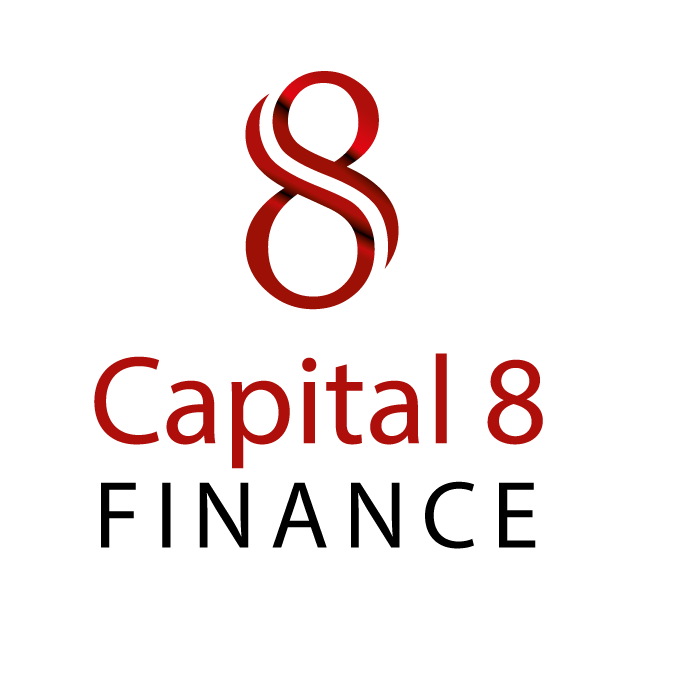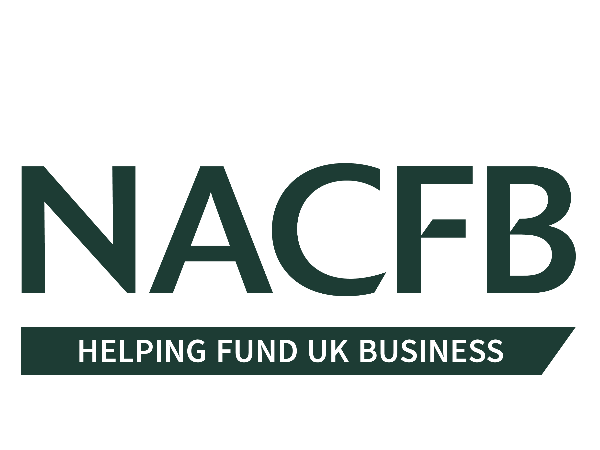Commercial Mortgages Scotland
Funding Your Business Property Purchase
Introduction
Whether you’re purchasing a business premises, investing in commercial property, or refinancing existing debt, Capital 8 Finance provides expert commercial mortgage solutions across Scotland and throughout the UK.
With access to high street banks (HSBC, Barclays, Lloyds, NatWest/RBS), challenger banks (Allica, Shawbrook, Interbay), and specialist lenders (Together Money and others), we secure competitive commercial mortgage rates for businesses of all sizes – from £50,000 to several million pounds.
Based in Dundee, we serve business owners and property investors across Scotland, England, and Wales, providing tailored commercial property finance for owner-occupiers and investors alike.

What Is a Commercial Mortgage?
A commercial mortgage is a loan secured against commercial property – business premises, investment properties, or mixed-use buildings. Unlike residential mortgages (which fund homes), commercial mortgages fund properties used for business purposes.
Common uses:
- Owner-occupier purchases– Buying premises for your own business to operate from
- Commercial investment– Purchasing property to lease to tenants
- Refinancing– Replacing existing commercial debt with better terms or releasing equity
- Property development– Funding commercial property improvements (though development finance may be more suitable for major projects)
Key differences from residential mortgages:
- Higher deposits required– Typically 25-40% (vs. 5-15% for residential)
- Loan-to-value (LTV)– Usually 60-75% (vs. 85-95% for residential)
- Interest rates– Typically 1-3% higher than residential mortgages
- Assessment criteria– Based on business financials and rental income, not just personal income
- Repayment terms– Typically 3-30 years (shorter than residential mortgages)
Who We Help
We arrange commercial mortgages across Scotland and the UK for:
Business Owners (Owner-Occupiers)
- Purchasing your trading premises (retail shops, offices, warehouses, factories)
- Buying the property you currently rent (becoming your own landlord)
- Expanding your business with additional premises
- Refinancing existing commercial mortgages to release equity or secure better rates
Property Investors
- Acquiring commercial buildings to lease to businesses
- Building a commercial property portfolio
- Purchasing mixed-use properties (commercial ground floor, residential above)
- Refinancing investment properties
All Business Sectors
- Retail shops and shopping centers
- Hospitality (restaurants, takeaways, hotels, guest houses, pubs, nightclubs)
- Offices and coworking spaces
- Industrial units, factories, and warehouses
- Medical and dental practices, pharmacies
- Gyms and leisure facilities
- Mixed-use (semi-commercial) properties
Types of Commercial Mortgages
Owner-Occupier Commercial Mortgages
An owner-occupier commercial mortgage is where you purchase property to operate your own business from. This could be:
- Buying the property your business currently rents
- Purchasing new premises to move your business into
- Acquiring additional premises to expand your operations
Benefits of owner-occupier mortgages:
- Build equity– Mortgage payments build ownership instead of paying rent
- Business asset– The property becomes a valuable business asset
- Stability– No risk of landlord selling or increasing rent
- Tax advantages– Mortgage interest may be tax-deductible (consult your accountant)
Lender assessment:
Lenders assess owner-occupier applications based on:
- Your business’s financial strength (profitability, cash flow, trading history)
- Personal credit history of directors/owners
- Deposit available (typically 25-40%)
- Business plan and future projections
Example:
A retail business owner in Edinburgh currently pays £2,000/month rent (£24,000/year). They find premises for sale at £300,000. With a 30% deposit (£90,000) and a £210,000 commercial mortgage at 7% over 20 years, monthly repayments are approximately £1,627 – lower than their current rent, while building equity.
Commercial Investment / Buy-to-Let Mortgages
A commercial investment mortgage (also called commercial buy-to-let) is where you purchase commercial property to lease to a business tenant.
How it works:
You purchase a commercial property (office, retail unit, warehouse, etc.) and lease it to a business tenant. Rental income covers the mortgage payments, and you benefit from:
- Monthly rental income (after mortgage payments)
- Property value appreciation over time
- Portfolio diversification (commercial property vs. residential BTL)
Lender assessment:
Lenders assess commercial investment mortgages based on:
- Rental income– Must typically cover 125-145% of mortgage payments (rental cover ratio)
- Tenant quality– Established tenant with strong covenant (creditworthiness)
- Lease terms– Length of lease, rent review clauses, tenant responsibilities
- Your experience– Property investment experience and financial strength
Example:
An investor purchases a £400,000 office building in Glasgow with a 40% deposit (£160,000) and a £240,000 commercial mortgage at 7.5% interest-only. Monthly interest payments are £1,500. The property is leased to a tenant for £2,500/month. Rental cover is 166% (£2,500 ÷ £1,500), comfortably exceeding lender requirements.
Commercial Mortgage Lenders
We work with three tiers of commercial mortgage lenders, each with different criteria, rates, and risk appetites:
High Street Banks
Examples: HSBC, Barclays, Lloyds, NatWest/RBS
Advantages:
- Lowest interest rates (typically 5-7%)
- Highest loan-to-value ratios (up to 75%)
- Longer repayment terms (up to 30 years)
- Established reputation and stability
Disadvantages:
- Strict lending criteria
- Lower risk appetite (prefer established businesses with strong financials)
- Slower processing times
- Less flexible on adverse credit or complex cases
Best for: Established businesses (3+ years trading), strong financials, good credit history, straightforward property purchases.
Challenger Banks
Examples: Allica, Shawbrook, Aldermore, Interbay
Advantages:
- More flexible lending criteria than high street banks
- Faster decision-making and processing
- Willing to consider newer businesses (1-2 years trading)
- More appetite for complex cases
Disadvantages:
- Slightly higher interest rates (typically 6-9%)
- Lower LTV ratios (typically 60-70%)
- Higher arrangement fees
Best for: Businesses with 1-3 years trading history, slightly weaker financials, or properties that don’t fit high street bank criteria.
Specialist Lenders
Examples: Together Money, Hampshire Trust Bank, Ortus Secured Finance
Advantages:
- Most flexible lending criteria
- Willing to consider adverse credit (CCJs, defaults, bankruptcies)
- Accept newer businesses (under 12 months trading)
- Consider complex property types (mixed-use, unconventional properties)
- Fast decision-making (days, not weeks)
Disadvantages:
- Highest interest rates (typically 7-12%)
- Lowest LTV ratios (typically 50-65%)
- Higher arrangement fees (2-3% of loan amount)
Best for: Businesses with poor credit history, very new businesses, complex property types, or urgent funding needs.
Typical Loan Amounts & Terms
Loan amounts:
- Minimum:£50,000
- Maximum:No upper limit (we’ve arranged loans up to several million pounds)
- Most common:£100,000-£500,000
Loan-to-value (LTV) ratios:
- High street banks:65-75%
- Challenger banks:60-70%
- Specialist lenders:50-65%
Repayment terms:
- Typical range:3-30 years
- Most common:15-25 years
- Interest-only options:Available from challenger and specialist lenders (capital repaid at end of term)
Deposit requirements:
- Minimum deposit:25-40% of property value
- Owner-occupier:Typically 25-35%
- Investment properties:Typically 30-40%
Important note on valuations:
Commercial mortgage LTV is calculated based on the lender’s valuation, not the purchase price. Different lenders use different valuations to base lending on. Lenders may use market value, 180 day vacant possession value or investment value (for HMOs). This means the actual loan amount may be lower than expected if the lender’s valuation comes in below the purchase price. We always recommend clients to do some due diligence on the proeprty value and also factor in a buffer when calculating the deposit requirements
Interest Rate Options
Variable Rate Commercial Mortgages
Variable rates fluctuate with a benchmark rate (usually Bank of England base rate or the lender’s standard variable rate).
Advantages:
- Benefit from interest rate cuts (lower monthly payments)
- Often no early repayment charges
- More flexibility to refinance or exit
Disadvantages:
- Payments increase if interest rates rise
- Harder to budget (unpredictable monthly costs)
Current variable rates: Typically 6-10% (as of 2025)
Best for: Businesses expecting to refinance within 1-3 years, or those confident interest rates will fall.
Fixed Rate Commercial Mortgages
Fixed rates remain constant for a set period (typically 2, 3, 5, or 10 years), regardless of base rate changes.
Advantages:
- Predictable monthly payments (easier budgeting)
- Protection from interest rate rises
- Peace of mind for long-term planning
Disadvantages:
- Don’t benefit from interest rate cuts
- Early repayment charges if you exit during fixed period
- Slightly higher rates than variable (you pay for certainty)
Current fixed rates: Typically 5.5-9% (as of 2025, depending on term and lender)
Best for: Businesses wanting payment certainty, long-term property ownership, or those concerned about rising interest rates.
Interest-Only Commercial Mortgages
With interest-only mortgages, you pay only the interest each month (no capital repayment). The full loan amount is repaid at the end of the term (via refinancing, property sale, or lump sum payment).
Advantages:
- Lower monthly payments (improves cash flow)
- Maximizes rental yield for investment properties
- Frees up cash for business growth or other investments
Disadvantages:
- No equity build-up during the term
- Must have a credible repayment strategy (lenders require proof)
- Total interest paid is higher over the loan term
Typical repayment strategies:
- Refinance onto a new commercial mortgage
- Sell the property
- Use business profits or personal savings
- Use pension funds (for SIPP/SSAS purchases)
Best for: Property investors prioritizing cash flow, businesses with strong growth plans, or those with clear exit strategies.
Who Can Apply for a Commercial Mortgage?
Commercial mortgages are available to:
- Individuals– Sole traders or personal property investors
- Partnerships– Business partnerships purchasing premises
- Limited Companies– Most common structure for commercial property ownership
- SPVs (Special Purpose Vehicles)– Limited companies set up specifically to hold property
- SIPPs (Self-Invested Personal Pensions)– Purchase commercial property within your pension
- SSAS (Small Self-Administered Schemes)– Company pension schemes purchasing business premises
Eligibility Criteria & Documentation Required
Minimum requirements:
For Owner-Occupiers:
- Trading history: Typically 2-3 years (some lenders accept 12 months)
- Profitable business with strong cash flow
- Deposit: 25-40% of property value
- Good personal credit history (some lenders accept adverse credit)
For Investment Properties:
- Rental income must cover 125-145% of mortgage payments
- Tenant in place or strong rental demand evidence
- Deposit: 30-40% of property value
- Property investment experience (preferred but not always required)
Documents typically required:
Business financials:
- Last 3 years’ business accounts (or 2 years for newer businesses)
- Some lenders will request a set of management accounts
- Last 3 months’ business bank statements
- Business plan (for newer businesses or complex cases)
- Proof of deposit funds
Personal financials:
- Last 3 years’ personal tax returns (SA302s)
- Last 3 months’ personal bank statements
- Proof of identity (passport or driving license)
- Proof of address (utility bill or bank statement)
Property information:
- Property details (address, size, condition)
- Valuation report (arranged by lender)
- Lease agreement (for investment properties with tenants)
- Planning permission (if applicable)
Typical Timeline
How long does a commercial mortgage take?
Standard timeline: 2-3 months from application to completion
Breakdown:
- Initial consultation & application– 1-2 weeks (gathering documents, submitting application)
- Lender decision in principle– 3-7 days
- Property valuation– 1-2 weeks (lender arranges surveyor)
- Full mortgage offer– 2-4 weeks (underwriting and approval)
- Legal work– 4-8 weeks (solicitors handle contracts and searches)
- Completion & funding– 1-2 days (funds released, property ownership transfers)
Complex cases may take 3-6 months if:
- Property requires extensive surveys or specialist valuations
- Business financials require additional underwriting
- Legal issues arise (title defects, planning restrictions, etc.)
- Multiple parties involved (partnerships, SPVs, etc.)
Faster options available:
- Bridging finance can complete in 2-4 weeks for urgent purchases
- Some challenger and specialist lenders offer expedited processing
How Much Does a Commercial Mortgage Cost?
Interest rates (as of 2025):
|
Lender Type
|
Variable Rates
|
Fixed Rates (2-5 years)
|
Fixed Rates (5-10 years)
|
|
High street banks |
5.5-7% |
5.5-7.5% |
6-8% |
|
Challenger banks |
6-9% |
6.5-9% |
7-9.5% |
|
Specialist lenders |
7-12% |
8-12% |
9-13% |
Fees:
- Arrangement fee:1-3% of loan amount (e.g., £2,000-£6,000 on £200k loan)
- Valuation fee:£500-£2,000 (depending on property value and complexity)
- Legal fees:£1,000-£3,000 (solicitor costs for conveyancing)
- Broker fee:Typically 1% of loan amount (e.g., £2,000 on £200k loan) – we only charge if funding is secured
Example cost calculation:
Scenario: £300,000 commercial property purchase in Dundee (retail shop, owner-occupier)
- Property value:£300,000
- Deposit (30%):£90,000
- Loan amount:£210,000
- Interest rate:7% fixed for 5 years
- Term:20 years (capital repayment)
- Monthly repayment:£1,627
- Total interest over 20 years:£180,480
Upfront costs:
- Arrangement fee (2%): £4,200
- Valuation fee: £800
- Legal fees: £2,000
- Broker fee (1%): £2,100
- Total upfront costs:£9,100
- Total cost of borrowing:£180,480 interest + £9,100 fees = £189,580
Commercial Mortgages vs. Other Funding Options
When to choose a commercial mortgage:
- Long-term property ownership (5+ years)
- Lower interest rates acceptable in exchange for longer commitment
- Established business with strong financials
- Standard property purchase (no urgent timeline)
When to consider alternatives:
- Bridging finance– Urgent purchase (complete in 2-4 weeks), unmortgageable property, or short-term funding need
- Business loan– Smaller amounts (under £50k), no property security required
- Development finance– Major refurbishment or property development project
Why Choose Capital 8 Finance for Your Commercial Mortgage?
Expertise in Commercial Property Finance
With many years of experience arranging commercial mortgages across Scotland and the UK, I understand the complexities of commercial property finance. Whether you’re purchasing your first business premises or building a commercial property portfolio, I’ll guide you through every step.
Whole-of-Market Access
As an independent broker, I’m not tied to any single lender. I have access to:
- High street banks (HSBC, Barclays, Lloyds, NatWest/RBS, Santander)
- Challenger banks (Allica, Shawbrook, Atom Bank, Interbay, Aldermore)
- Specialist commercial lenders (Together Money, Ortus Secured Finance, MT Finance, Masthaven Bank)
- Complex case specialists for businesses with adverse credit, limited trading history, or unique property types
This means I can compare rates, terms, and eligibility across the entire UK market to find you the most competitive commercial mortgage.
Scotland-Based, UK-Wide Service
Based in Dundee, I serve business owners and property investors across Scotland, England, and Wales. I understand the unique challenges of Scottish businesses and have secured commercial mortgages for clients across all regions and property types.
One-Stop Shop for Business & Property Finance
Need more than just a commercial mortgage? I can also arrange:
- Bridging finance (for urgent purchases or unmortgageable properties)
- Development finance (for refurbishment or development projects)
- Business loans (for working capital or equipment)
- Invoice finance, asset finance, and stock finance
This means you get comprehensive funding solutions from a single trusted advisor.
Support from Enquiry to Completion
Commercial mortgages can be complex, so I’m here to make the process as smooth as possible:
- Free initial consultation to assess your needs and eligibility
- Document preparation and application submission
- Liaison with lenders, valuers, and solicitors
- Regular updates throughout the process
- Support right through to completion and beyond
Get Your Free Commercial Mortgage Consultation
Ready to purchase commercial property in Scotland or across the UK?
Here’s what happens next:
- Initial consultation– We’ll discuss your property purchase, business financials, and funding needs (free, no obligation)
- Eligibility assessment– I’ll confirm which lenders are suitable and provide estimated rates and terms
- Quote provided– Within 48 hours, I’ll provide you with commercial mortgage options from our lender panel
- Application submitted– Once you choose a lender, I’ll handle the entire application process
- Mortgage approved– Typical timeline is 2-3 months from application to completion
- Completion & funding– Funds are released, and you take ownership of your commercial property
Contact Capital 8 Finance today for expert commercial mortgage advice across Scotland and the UK.
Frequently Asked Questions
What’s the difference between a commercial mortgage and a residential mortgage?
Commercial mortgages fund business premises or investment properties, while residential mortgages fund homes. Commercial mortgages typically require larger deposits (25-40% vs. 5-15%), have higher interest rates, and are assessed based on business financials and rental income rather than personal income alone.
How much deposit do I need for a commercial mortgage?
Typically 25-40% of the property value. Owner-occupier mortgages usually require 25-35%, while investment properties require 30-40%. High street banks may offer up to 75% LTV (25% deposit), while specialist lenders typically offer 50-65% LTV (35-50% deposit).
Can I get a commercial mortgage with bad credit?
Yes, though your options will be more limited. Specialist lenders are willing to consider adverse credit (CCJs, defaults, bankruptcies), but you’ll face higher interest rates (8-12%) and lower LTV ratios (50-65%). The strength of your business and the property itself also matter significantly.
How long does a commercial mortgage take to complete?
Typically 2-3 months from application to completion, though complex cases can take 3-6 months. If you need faster funding, bridging finance can complete in 2-4 weeks.
What’s the difference between owner-occupier and investment commercial mortgages?
Owner-occupier mortgages are for businesses purchasing premises to operate from. Lenders assess based on business financials. Investment mortgages are for purchasing property to lease to tenants. Lenders assess based on rental income (which must cover 125-145% of mortgage payments).
Can I use a commercial mortgage to buy a property with a residential flat above?
Yes, these are called mixed-use or semi-commercial properties. Many lenders offer commercial mortgages for mixed-use properties, though some may require the commercial element to represent at least 40-50% of the property’s value.
What’s an interest-only commercial mortgage?
With interest-only mortgages, you pay only the interest each month (no capital repayment). The full loan amount is repaid at the end of the term via refinancing, property sale, or lump sum payment. This keeps monthly payments lower but requires a credible repayment strategy.
Can I remortgage my commercial property?
Yes, commercial remortgaging (also called refinancing) allows you to replace your existing mortgage with a new one – either to secure better rates, release equity, or switch from interest-only to capital repayment. The process is similar to a new commercial mortgage application.
Do I need a business plan for a commercial mortgage?
Not always, but it helps – especially for newer businesses (under 3 years trading) or complex cases. A business plan demonstrates to lenders how you’ll afford mortgage repayments and grow your business. I can advise whether your application would benefit from a business plan.


